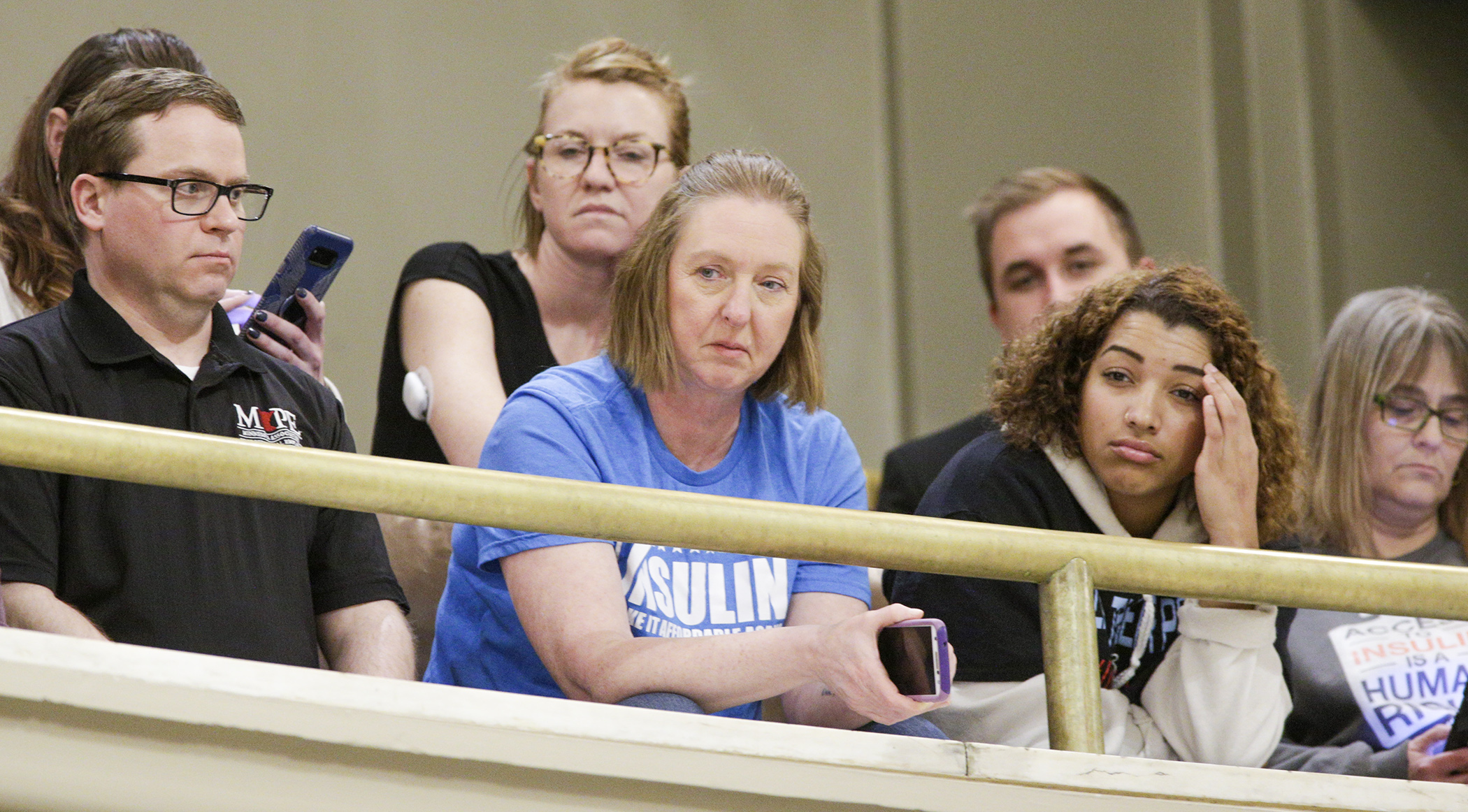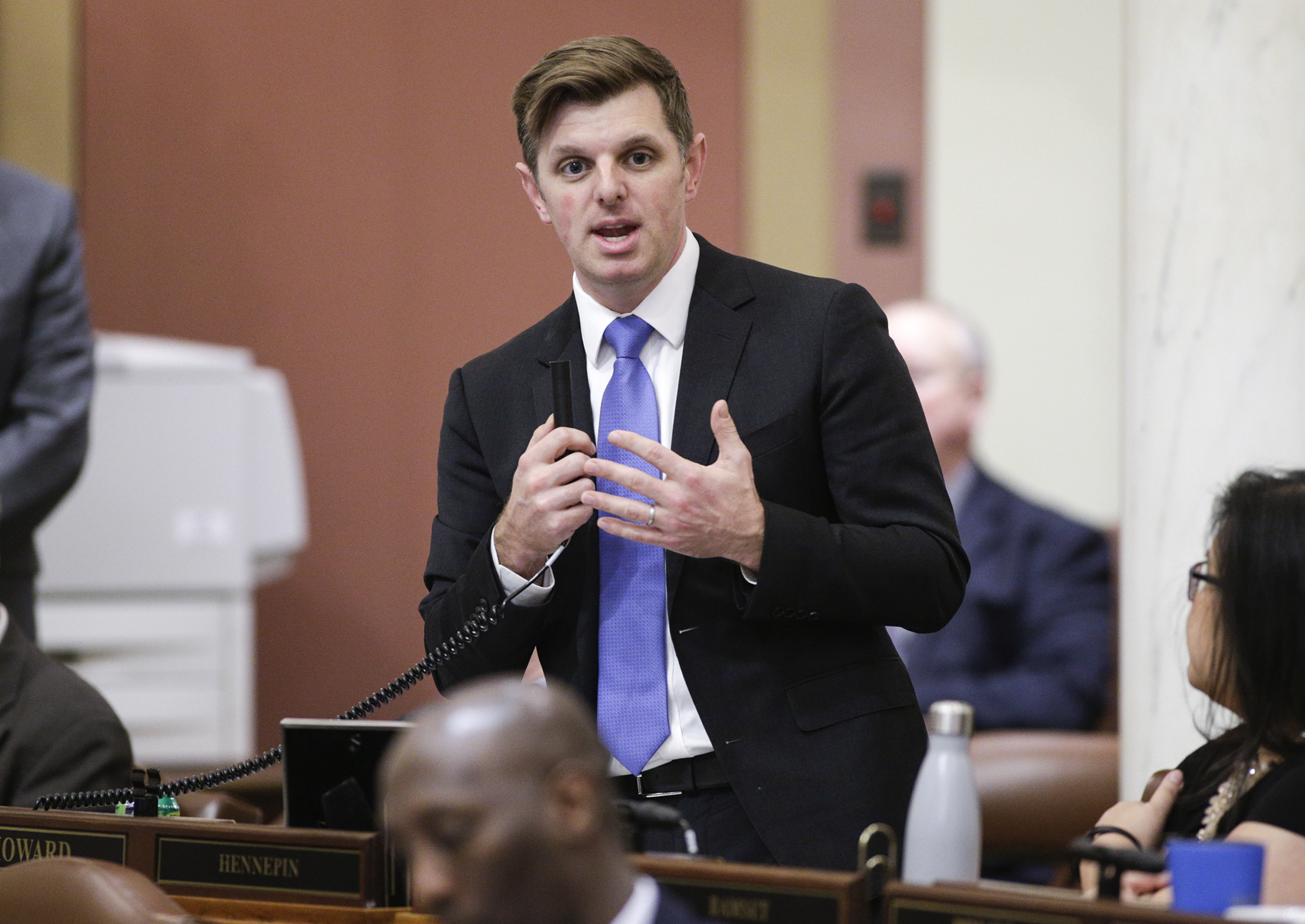House passes bill to create insulin assistance program

A bill to create an emergency insulin assistance program to help Minnesotans with diabetes who are struggling to afford their medicine is potentially halfway home.
On a 75-52 vote, the House passed HF3100 Wednesday night.
Sponsored by Rep. Michael Howard (DFL-Richfield), it would set up two programs: one allowing Minnesotans to get up to a three months’ supply of insulin free in an emergency and the other helping them get insulin on an ongoing basis.
The bill now goes to the Senate, where Sen. Melissa Wiklund (DFL-Bloomington) is the sponsor.
Insulin costs have tripled in the past 10 years and one in four diabetics ration their insulin due to cost. Last year, the House and Senate passed separate versions of the Alec Smith Emergency Insulin Act with bipartisan support. Alec Smith died in 2017 at age 26 while rationing his insulin until payday after aging off his parents’ health insurance. His medicine cost $1,300 a month; he had $1,000 in his bank account when he died.
“It is beyond heartbreaking,” Howard said.
Smith’s story put skyrocketing insulin costs in the national spotlight, but differences between the two bills last session couldn’t be resolved during the conference committee process. A bipartisan group working during the interim failed to reach a resolution, either.
Since then, four large health plans have stepped up to cap copays at $25, but at least two Minnesotans have died since last session because they couldn’t get insulin, Howard said.
House Speaker Melissa Hortman (DFL-Brooklyn Park) said earlier Wednesday that the House moved the bill through quickly – with seven hearings in seven days – to make sure it got full consideration.
Some Republican lawmakers argued the government shouldn’t get involved.
Rep. Jeremy Munson (R-Lake Crystal) questioned whether diabetics should get “everything” free or nearly free, but not cancer patients. He suggested the program would be a foot in the door for a “socialist takeover of health care.”
Rep. Alice Mann (DFL-Lakeville), a physician by trade, said with 42% profit margins and $80 billion in revenue at the three insulin manufacturing companies, they’re putting “a little extra change” in their pockets. And Rep. Laurie Halverson (DFL-Eagan), who has Type 1 diabetes, said it was disappointing to hear what Republicans said, saying the burden is not easy for people with the disease.
Howard said the bill culled good ideas from both bills last session, and goes beyond last year’s focus on emergency supplies.
“This is not about punishing the drug companies,” Howard said. “This is a public health crisis.”
Under the bill, pharmacies would have to participate in the program to do business in Minnesota, and copays would be capped at $30 per month for regulated health plans. The program would be administered by MNsure.
 Rep. Michael Howard discusses his bill, HF3100, which would establish an emergency insulin program, during floor debate Feb. 26. Photo by Paul Battaglia
Rep. Michael Howard discusses his bill, HF3100, which would establish an emergency insulin program, during floor debate Feb. 26. Photo by Paul BattagliaRep. Steve Drazkowski (R-Mazeppa) said the bill is a socialist policy that would grow government and tax people because the manufacturers would increase prices to pay the new fees.
“We can’t make a pharmacist out of government,” he said.
To be eligible for the insulin program, people would have to be uninsured; have drug coverage through Medicare and have incurred more than $1,000 in annual out-of-pocket drug costs or have private insurance with cost sharing that exceeds $50 for a month’s supply of insulin. Participants’ household income could not exceed 400% of federal poverty guidelines.
Cost-sharing limits for insulin in the private insurance market would be established by the bill. All insulin manufacturers would have to participate in the program to do business in Minnesota.
The bill would appropriate $321,000 from the health care access fund to create the program; $250,000 to MNsure for a public awareness program; $250,000 this year and next from the health care access fund to MNsure for navigator training on the programs and $26,000 from the health care fund for administrative costs.
An amendment offered by Rep. Tony Albright (R-Prior Lake) that would have funded the program through the state health care access fund, rather than manufacturers, and remove the navigator training and administrative costs was ruled out of order.
Related Articles
Search Session Daily
Advanced Search OptionsPriority Dailies
Legislative leaders set 2026 committee deadlines
By Lisa Kaczke Legislative leaders on Tuesday officially set the timeline for getting bills through the committee process during the upcoming 2026 session.
Here are the three deadlines for...
Legislative leaders on Tuesday officially set the timeline for getting bills through the committee process during the upcoming 2026 session.
Here are the three deadlines for...